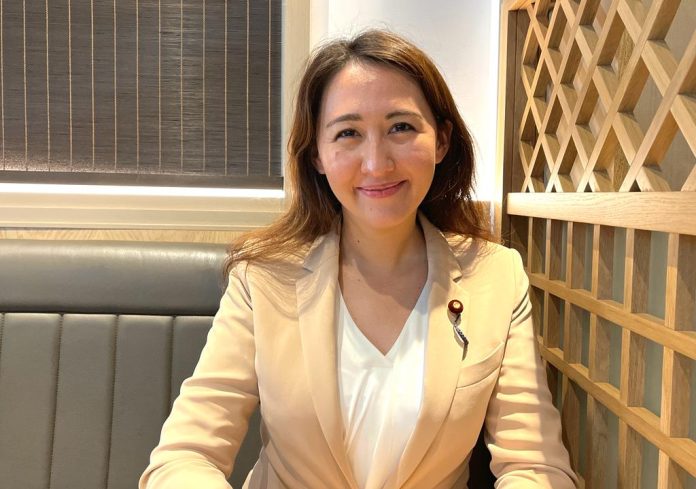A Japanese lawmaker of Uyghur descent has called on Tokyo to take a stronger stand against China’s human rights abuses against the 12 million mostly Muslim ethnic group living in northwestern China.
“Egregious human rights violations occurring in the Uyghur region is one of the greatest, and certainly a generation-defining, human rights crises of our time,” Arfiya Eri, a 35-year-old member of Japan’s more powerful lower house of parliament, told Radio Free Asia.
“The international community, including Japan, must do its part to ensure that we do not set a precedent where such violations go unaccounted for under our watch,” she said, echoing comments she made earlier this month at the Sydney Dialogue, hosted by the Australian Strategic Policy Institute. The annual summit in Sydney focuses on critical, emerging and cyber technologies.
In 2023, Eri was elected to Japan’s Diet, or parliament, as a member of the ruling Liberal Democratic Party representing a district just east of Tokyo. Raised in Japan, she is the first Japanese of Uyghur background to be elected to the Diet.
Eri’s perspective carries personal and symbolic weight, highlighting the experiences of those directly affected by human rights abuses in Xinjiang and underscoring a moral imperative for Japan to act, Uyghur activists say.
For the past decade, China has severely repressed the 12 million mostly Muslim Uyghurs and other Turkic minorities who live in the Xinjiang Uyghur Autonomous Region, subjecting them to heavy surveillance, restricting their religious practices and detaining them in internment camps and prisons.
Eri’s call comes amid greater demands by Uyghur activists for the international community to take concrete steps to punish China for its rights abuses against the Uyghurs in Xinjiang.
In February 2022, Japan’s Lower House adopted a resolution expressing concern over the human rights situation in China, including the plight of the Uyghurs, and called on Beijing to take measures to address the situation.
But Eri said nothing has really changed in Tokyo’s stance toward Beijing on this issue.
She said that Japan, “as the strongest democratic economy in Asia, and as a country that holds the values of democracy, human rights, and rule of law as fundamental to its identity, can and must do more for peace, democracy, and human rights worldwide.”
As a board member of a multiparty alliance on human rights diplomacy in Japan, she is engaging her colleagues to “do more in resolving human rights and humanitarian crises worldwide,” Eri said.
Fluent in English, Japanese and Uyghur, Eri previously worked for the Bank of Japan and the United Nations.









































